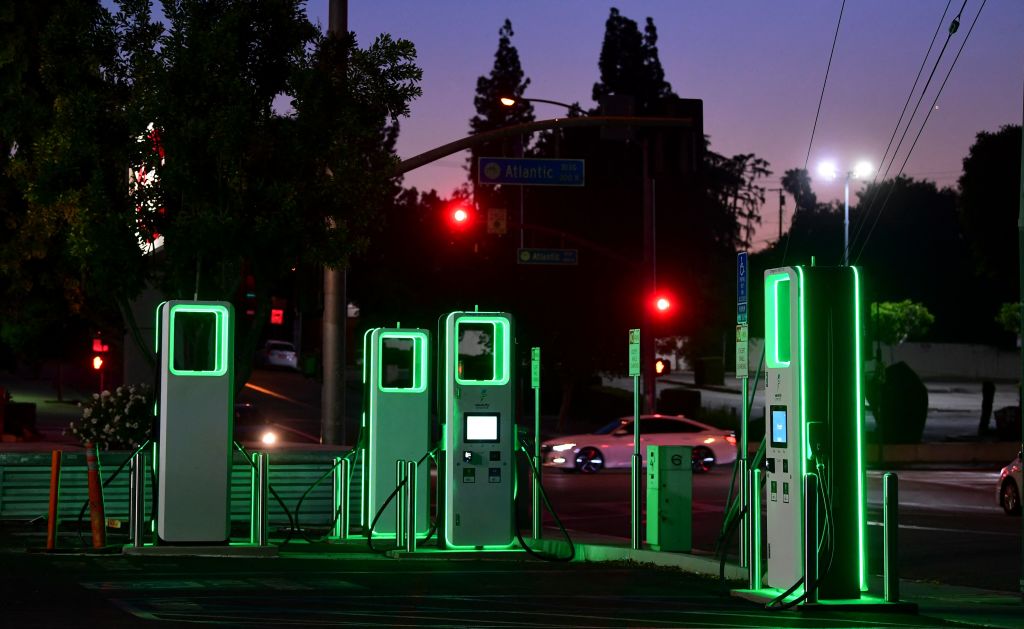Seattle electric vehicle users are experiencing yet another problem with EVs, and it is a problem you can bet will spread — in short order — to other big cities.
It seems as if not a week passes where we don’t see another new problem with electric vehicles, but at least this issue isn’t exactly the fault of the still shaky technology. Users in Seattle have discovered public charging stations broken open and missing copper wiring, which had been ripped out by metals thieves.
The issue has been ongoing for months, Media Relations Manager for Seattle City Light Jenn Strang said, according to KOMO-TV.
“Since March of 2022, we have seen an increase of activity where we’ve have had people coming and removing the charging cables from our public charging stations,” Strang told the outlet.
“They are taking the metal, and they are turning it in for monetary gain. Unfortunately, the amount of money they are [getting] is nominal. It’s about ten dollars,” Strang explained.
City officials indicated that eight charging stations have recently been vandalized by thieves.
The repair price is far more than a mere ten dollars, though. Strang said that the cables cost upwards of $2,000 each to replace, and that is on top of the $500 to have a technician install the replacements.
Executive Director of Crime Stoppers of Puget Sound Jim Fuda told the outlet that this is just a new opportunity for metals thieves.
“What’s a charging cable? Anywhere from 6 to 10 to 12 feet. They cut that up in two to six-foot lengths, and haul it out quickly, and strip it, and go sell it to a fence,” Fuda said.
As left-wing states continue to indulge their goal of banning gas-powered cars, cities are now confronting new costly issues like this. And Seattle officials said they are mulling ways to put the brakes on copper thieves. One possible idea is to redesign the charging stations, so that charging cables will only appear out of the charging station when someone triggers them with a cell phone app.
“Instead of via a charging station that someone would [drive] up to, it’s something that’s mounted up to a pole, and then you have to have an app, so by accessing the app the charger comes down,” Strang said of the proposed redesign.
Meanwhile, damaged charging stations remain out of order until city repairmen can get them serviced.
The number of stations hit by metals thieves may seem small, but it is an ongoing problem that will likely spill over to stations across the country that charge these car batteries — which have serious issues of their own.
The number of charging stations is still at a problematic low. Seattle may have less of a problem with that, of course. According to the website PlugShare, there are 471 free charging stations in the Seattle-Tacoma-Bellevue region and a total of 2,975 stations of all types, including pay-per-charge stations. But while deep blue cities, such as Seattle, do have a high number of charging stations to utilize, the country as a whole does not.
According to the U.K. Daily Mail, the U.S. will have to spend more than $35 billion to upgrade its current EV charging infrastructure if the nation is to go to majority EV usage by 2030.
“America would have to install 30 million electronic vehicle charging ports by 2030 if half of drivers switch to EVs by the time California’s ban on gas cars takes effect,” the outlet reported in August.
Of course, EV users could always put in their own charging stations at home, but they will face stiff costs.
Recently Cars.com paid to have six different kinds of home EV charging bases installed in the homes of their employees and found a range of prices and effectiveness. The costs ranged from $1,738 for the cheapest version mounted on the side of an employee’s house to the $4,450 it cost to build a freestanding, curbside station to $6,920 for a line to be run from the house to a detached garage. And that does not take into account the nearly $500 added to your home electric bill each year, as estimated by Business Insider.
EVs have many issues that make them more troublesome than Joe Biden wants you to believe as he constantly pushes electric vehicles on the American public. And now that we have crooks taking advantage of their charging infrastructure, one more problem has been thrown into the mix.
This article appeared originally on The Western Journal.

























 Continue with Google
Continue with Google